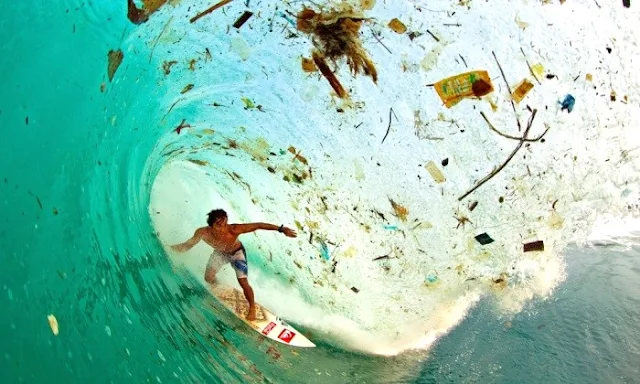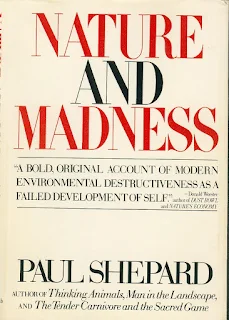How can we address the causes of the climate crisis? Which basically means, how do we reduce greenhouse gases? The conversation about this tends to be abstract, political (a carbon tax etc.) or piecemeal, often pitting one method against another.
But a small group in Sausalito organizing mostly young researchers from 22 countries has made what seems like the first systematic effort to figure out what really can draw down CO2 and other greenhouse gases in the next 30 years. This has resulted in a book (
Drawdown: The Most Comprehensive Plan Ever Proposed to Reverse Global Warming, edited by the project's founder, environmental entrepreneur Paul Hawken), a
website and an ongoing project that seeks partners and participation.
So far Project Drawdown has identified and ranked 100 ways. But it's more than a wish list by folks brainstorming in an editorial meeting. They've tested existing methods against cost and potential benefit in greenhouse gases reduction and in monetary saving. They carefully vetted both data and conclusions with an array of experts.
Also notable is their global reach, including solutions for third world countries, and looking to indigenous peoples as land managers to be part of the solution.
Some of the ways to best address greenhouse gases in the atmosphere are not surprising (wind power, various forms and applications of solar, more forest) while others perhaps are (refrigeration techniques, food waste, educating girls.) There are some fascinating cutting edge combinations of nature and relatively low tech or no-tech, like Silvopasture and other methods of reducing the unnaturally large carbon footprints of cattle.
There are a number of videos on YouTube about the Project. A nice 11 minute one is
here, and there's a longer
presentation with visuals by Katharine Wilkinson of Project Drawdown to Google. (Note: viewers over 50 may find the parade of cliches grating but they do seem effective shorthand and images for her audience.)
The findings so far are billed as "the most comprehensive plan" so far, and the word "comprehensive" is very important, especially in setting priorities. In terms of addressing the problem, there's been a lot of hot air about how changes in the obvious sectors (energy, transportation) can or can't be adequate to slow emissions enough, and especially if there's even the will to try.
But that debate lacks the information on how much other solutions can contribute to the necessary drawdown, so those other solutions are usually just ignored. This project attempts to not only bring them into the conversation, but to assess their possible contribution with numbers.
The idea of planning for the future by developing comprehensive pictures of problems and solutions has been a dream since H.G. Wells and Buckminster Fuller. When the idea caught fire in the 1970s that computers could help examine the world as a system, with all the factors and interactions and feedbacks, there was a huge boom in Future Studies, futuristics etc. By 1980 it had died out, partly I assume because computers in those days, let alone people, weren't quite up to the task.
With a single goal of drawing down greenhouse gases, Project Drawdown has a chance, but as it has already learned, there are all kinds of other effects, interactions, synergies and feedbacks involved in the changes they suggest. Most are positive however, which reminds me of this cartoon:
Yet Project Drawdown is just a start in the comprehensivity game, as suggested in an interview Paul Hawken did with the editor of Green America. Hawken calls nuclear energy a "regret solution" because he doesn't support it, but the numbers say it will help, so it is included in the list. In an editorial note, Green America maintains that once the energy used in mining and enriching uranium plus plant construction etc. is all figured in, more greenhouse gas pollution is created and needs to be part of the assessment. So maybe this needs to be more comprehensive. The Project should continue refining its data and conclusions.
But a huge advantage of the project's list is that progress can be made in adopting these changes by business sectors, businesses, state and local governments, communities (all perhaps in partnership with universities), and by families and individuals. (And because it's global, by the governments of other countries where the problem is a given.)
In particular, as Wilkinson and others point out, there is such variety in effective methods that one or another is bound to appeal strongly to many individuals. These are projects for young people to get excited about, and to act on--perhaps as career paths. Though priorities are evident in the ranking, all of the solutions contribute, so selecting any one of them is a positive.
In publicizing Project Drawdown, Hawken and others feel it necessary to denigrate the "doom and gloom" surrounding the subject of the climate crisis. Maybe an attitude adjustment is needed, but I think they have a simpler solution: just refer to the science on the effects of the climate crisis as "the problem statement," (which they do) and go right into the solutions. That's their important contribution, and what is likely to get people excited, especially young people.
And it really is unnecessary for Hawken to make his case for paying attention to the project by going off into dubious areas. For instance (in his Green America interview), he asserts that "The human brain isn't wired to respond to future-existential threats. The people who did that are not in the gene pool."
He may have some half-assed neuroscience to back him up, but what he says is patent nonsense. Humans are all about imagining and assessing future dangers and opportunities (though denial often gets in the way), and the relationship of evolution to the brain is a very tricky area. Especially since individual human brains "evolve" in meaningful ways over a lifetime. People do come together because they care about the future, especially when they find something they can do well that can contribute to a better future.
People who think about the future are pretty obviously in the gene pool. They'd better be.


























